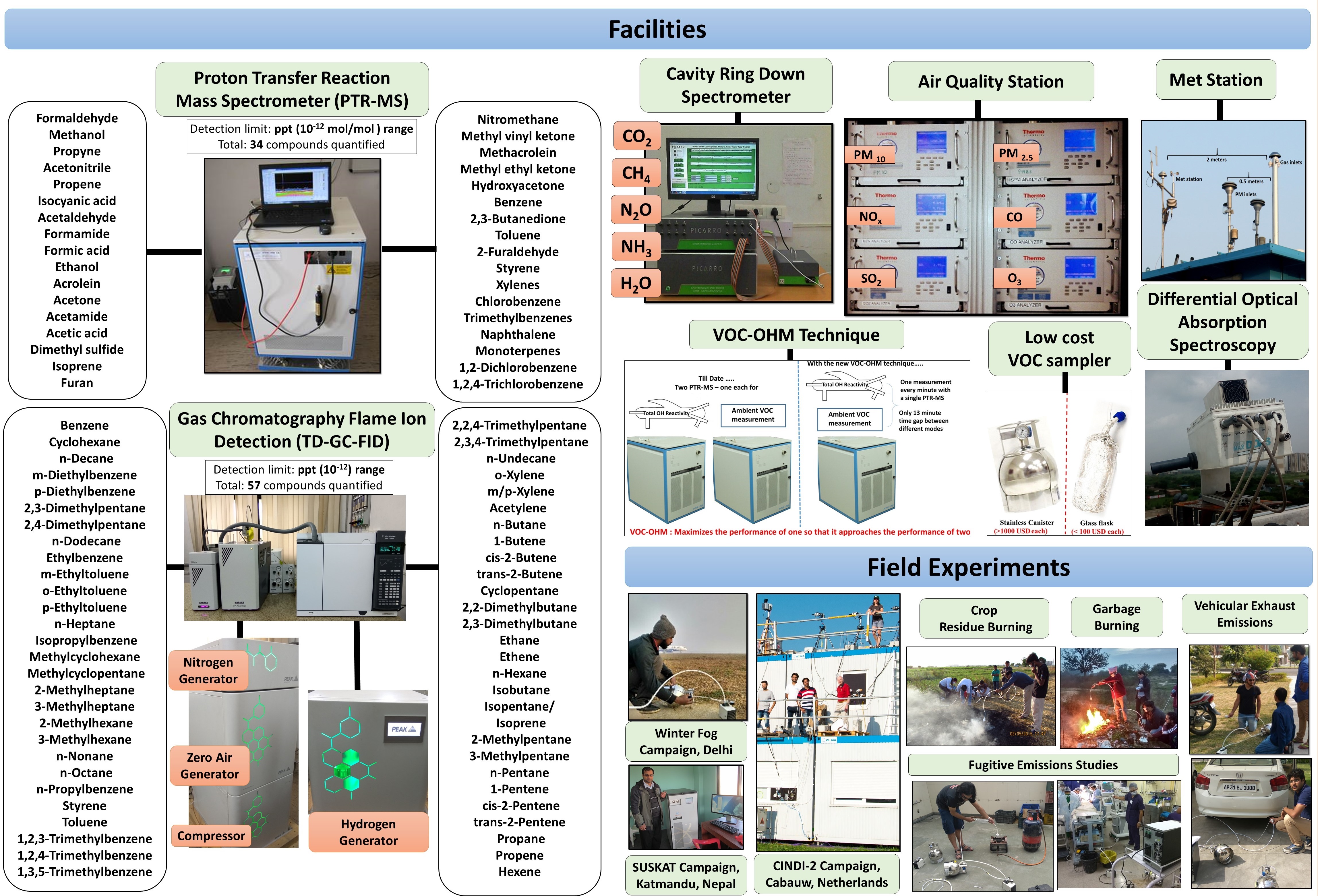Interested in a postdoc position in my research group? If so please contact me by email immediately to know more, I have a vacancy for a 2 year PDF
Our current research is focused on improving fundamental process based understanding of emissions-atmospheric chemistry-air quality and climate and their feedbacks over South Asia. Ozone formation chemistry and the sources, sinks of ambient gases (including green house gases and ammonia) are key focus areas.
The experimental work involves use of sophisticated mass spectrometric, gas chromatographic and spectroscopic techniques whereas the theoretical work involves use of chemical box models and chemical transport models such as the weather research and forecast model with online chemistry for such investigations.
Our group set up and operates an online atmospheric chemistry observatory in the north-west Indo Gangetic Plain since August 2011. This facility makes continuous measurements of atmospheric composition and meteorology for more than 100 ambient air constituents and climate variables, and is the only one to be so equipped and maintained in India. This laboratory was the first in India to bring proton transfer reaction mass spectrometry (PTR-MS) technology to India for applications in atmospheric chemistry and environmental studies. The instrument is capable of quantifying highly reactive volatile organic compounds (VOCs) that are chemical tracers and precursors of aerosol and surface ozone in real-time at parts per trillion (ppt) level and has led to insightful new field studies in Mohali, Kathmandu and Delhi.

The overall scientific approach combines field, laboratory and satellite data for studies relevant to atmospheric chemistry, air quality and climate over the Indian region, as per need. Some recent topics where our studies have contributed with strategic new knowledge and better process based understanding for critical environmental issues of our times include:
- Atmospheric chemistry impacts of agricultural crop residue burning on ambient atmospheric reactivity and air quality (e.g. Chandra and Sinha 2016, Kumar et al. 2016, Kumar et al., 2018)
- Assessing closure of budget of reactive gaseous emissions in pollution plumes and identification of missing reactive emissions (e.g. Kumar et al. 2018)
- Source apportionment of air pollutants using chemical fingerprinting of sources and real time ambient measurements (e.g. Sarkar et al., 2016, Sarkar et al. 2017, Kumar et al. 2020)
- Screening of plant species for biogenic reactive volatile compounds to assess those suitable for urban forestry and to study their climate and air quality impacts (e.g. Vettikat et al., 2020)
- Assessing the impact of the odd-even traffic rule like interventions on air quality (e.g. Chandra et al., 2018)
- Compilation of biogenic and anthropogenic emission inventories over India using measured emission factors and emission activity in collaboration with Dr. Baerbel Sinha’s group (e.g. Sharma et al., 2019)
- Development and validation of low cost reactive gas samplers (e.g. Chandra et al., 2017)